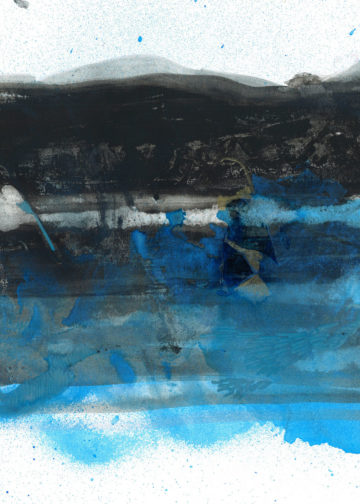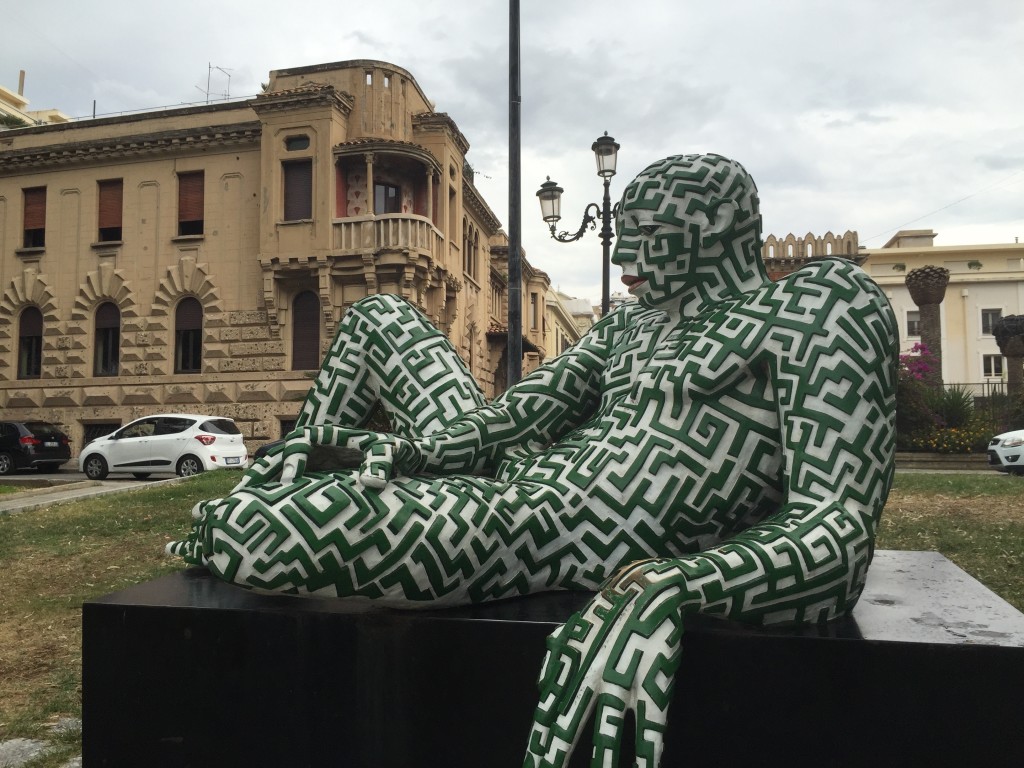Poems by Leonel Lienlaf and Juan Paulo Huirimilla are found in the Poetry section of The Dreaming Machine n. 1
Chile is a land of extraordinary poetic heritage. The twentieth Century saw Pablo Neruda and Gabriela Mistral both win Nobel Prizes for their poetry, while others like Vicente Huidobro, Pablo de Rokha and Nicanor Parra also had a powerful late- and post-modernist influence across the Spanish- and English-speaking worlds. As it enters the new century, Chile is experiencing yet another poetic revolution, although this time it is occurring in dramatically different circumstances. With the publication of Epu mari ülkantufe ta fachantü (‘Twenty Contemporary Mapuche Poets’) in 2003, Mapuche poetry was firmly established as a vital component of Chilean literature.1 The remarkable strength and diversity of work in the anthology spoke of an explosive and original creativity comparable to Indigenous art and writing here in Australia.
The Mapuche people are indigenous to Central and Southern Chile and Southern Argentina. At present they make up about four per cent of the Chilean population, but they are particularly concentrated in the southern region of Araucanía. They resisted European invasion of their lands from the early 1600s until 1881, a remarkable feat representing the most successful resistance to colonial incursion in recorded history. The ül, or traditional song, is considered the primary antecedent of the contemporary Mapuche lyric. Prior to invasion, composition and recital of ül, along with the sacred tayel, constituted the entirety of Mapuche poetic practice. Coupled with the rendition of stories, or epeu, Mapuche literary traditions were purely oral. Oral poetic practice still has considerable significance as a form of intracultural discourse that maintains the strength and vitality of Mapuche communities.
After the invasion of southern Chile, Mapuche people were taken from their lands and placed in grossly inadequate reservations. By the early 1900s this policy was giving way to the forced integration of many Mapuche people into Chilean urban life. Correspondingly, a second phase of Mapuche literature began to develop. Known as oralidad escrita (written orality), it refers to the written translations of ül into Spanish. The reception of Mapuche literature moved from purely intracultural contexts to intercultural ones (we might align this phase with the transcription of songs in T.G.H. Strehlow’s Songs of Central Australia).
It was not until the middle of the twentieth century, however, that Mapuche authors began to conceive of and produce their own written texts. Some of these, like the following poems by Leonel Lienlaf, are written in both Spanish and Mapuzungun, and therefore have highly explicit intercultural characters. Of the two poets whose work is present here, Paulo Huirimilla’s movement away from the structures of traditional Mapuche song poetry is far more vagrant, resulting in a fresh, hybrid poetic. Lienlaf, however, achieves more of a syncretism between the song structures of the ül and contemporary written forms.
Like Pablo Neruda, Lienlaf burst onto the Chilean literary scene at an extremely young age. His first book, Se ha despertado el ave de mi corazón (‘The Bird of My Heart has Awoken’), was published in 1989 when he was just twenty years old, and went on to win a variety of prestigious awards. Unlike many contemporary Mapuche poets, Lienlaf grew up in a rural Mapuche community, and only moved to Temuco, the capital of Araucanía, to study in his late teens. He has said on more than one occasion that he does not feel he is a poet in the individualist sense that a winka (a non-Indigenous Chilean) would define the term. ‘More than a representative of my culture,’ he says, ‘I come from it. I am an expression of it’2.
Lienlaf’s poetry uses traditional song structures within a wider context of Mapuche colonisation and subjugation. His position is certainly ambiguous, then, oscillating as it does between two worlds, and this ambiguity is reflected in his mode of publication: his books are bilingual, written by the poet in both Mapuzugun and Spanish, in order to appeal to readers of both languages. Nevertheless, there are clear and undeniable links between what the reader sees as written poems and the ül to which they all refer. Perhaps Lienlaf’s interest in traditional song poetry is demonstrated most clearly by the fact that, in the fourteen years between the publication of his two books of poems, he also produced a compact disc entitled Canto y poesía mapuche (‘Mapuche Song and Poetry’) in 1998. This was his most concrete realisation of more than a decade of research into Mapuche oral poetics.
In more recent years, Mapuche poets like Paulo Huirimilla have moved to the very forefront of Chilean avant-garde poetics and culture. Huirimilla has published two books of poetry, the most recent of which was the highly regarded and influential Palimpsesto (‘Palimpsest’) in 2005, as well as a considerable body of material on the internet. In 2008 he visited Australia to take part in the launch of Espejo de Tierra (‘Earth Mirror’), a bilingual anthology of poetry by Mapuche and Aboriginal Australian poets. While in the country he was struck by some of the similarities between Koori and Mapuche mythologies, which became manifest in ‘Rivers of Swans’ in the following selection.
Reading Huirimilla is like reading an Indigenous Chilean version of Michael Farrell’s poetry: his work is a composition of fragments and voices; samples from French modernist poetry jostle with scenes from cowboy movies and references to Mapuche cosmology. He is sarcastic and devilishly funny, yet highly attuned to contemporary trends in poetics both in Chile and internationally. Interestingly, however, the ül retains a strong presence in his work. Many of the poems in Palimpsesto, for example, are titled either as cantos (songs) or as ül. Indeed, like Lienlaf, Huirimilla has produced and performed on a compact disc of traditional Mapuche song poems.
So before reading the following poems, it is necessary to emphasise the very special importance of the word, and of its being spoken, in Mapuche culture. Indeed, we might suggest that if there is a particular cultural trait that distinguishes the Mapuche people, it is the fundamental role of language in their social fabric. For speaking is not only a medium of communication and expression, but an art form. As such, one’s ability to use language, even in contemporary contexts, is highly valued and contributes greatly to one’s social prestige. Oratory – translated into Spanish, the capacity for hablar bien (to speak well) – is so valued that one who possesses it is known as a weupin, or one who conserves Mapuzugun (literally: ‘the language of the earth’). It is no coincidence that many of the following poems are concerned with environmental destruction: the poet, the conserver of the earth’s language, speaks also for the conservation of the earth.
It is the earth’s language which determines an understanding of the universe, and of the relationships between all things.3 For prominent Mapuche poet and critic Elicura Chihuailaf, the words of Mapuzugun express the conception of the world as it was created by his ancestors – words are, he says, the world’s gestures (gestualidad).4 Language, therefore, functions on a variety of levels. Firstly, there is its synthetic quality, or the way it integrates and reinforces social and worldly relationships. There is also its historical function, in which the moment of speaking necessarily reinforces the speaker’s relationship with his or her origins and ancestors, while at the same time conserving and transmitting their values and beliefs.
For Chihuailaf, the human being travels through a world invested with gestures which express themselves before they are readily comprehended. Little by little, the discovery of words, of textures, of colours and smells, the ways in which we are impressed by things and by our dreams, are all transformed into language. It is in this language that the presence of the ancestors is to be found, as well as the presence ‘of each individual with his or her actuality and with the creation – and all of its potentiality – of his or her “future”’.5 This is the base of Mapuche poetics: a profound respect for the virtual realm from which we all come, and into which we all return.
Despite the significant stylistic differences between Lienlaf and Huirimilla, we can sketch a number of general assumptions about their combined corpus. The work of each involves both a rediscovery and reactualisation of one’s ancestral roots in the contemporary world and a return to the source of one’s cultural identity as a way of achieving cultural recuperation as Mapuche writers and community members. As such, we find in their work a series of basic orientations, the foremost of which is a mode of discourse intended to maintain and protect Mapuche tradition. The reader will also note a form of questioning or interrogation of winka practices, which is intended to edify Mapuche social and cultural structures; it is a style that demands recognition of Mapuche history, and the validation of their values and traditional knowledges.
Lienlaf and Huirimilla are writing from a space of multiple potentialities: they are reclaiming cultural roots while at the same time attempting to contest their marginal social positions and thereby overcome a sense of fragmentation and disorientation felt by many Mapuche in the present. Very similar to the more public discourse of Mapuche political activists, this complex practice takes poetry towards the very front of cultural resistance. The poem, rather than a mere trace of the past, is the outlet for this past: a living fissure in the present moment. The modernist void has become a virtuality composed of centuries of ancestral knowledge, as well as displacement, poverty, subjugation and accumulated resentment. Theirs is a genuinely after-modern poetry.
In the cases of both Lienlaf and Huirimilla, the political and cultural import of their work means that translation is undoubtedly necessary, but their poems also require a certain refiguring of the role of translation itself. The notion of an ‘original text’, which the translator must attempt to render faithfully in the new tongue, obscures the multiple origins of their poems. Lienlaf writes in both Mapuzugun and Spanish (from which I translated) – sometimes in Spanish first before translating the poem into Mapuzugun; sometimes the other way around. Huirimilla writes in Spanish, but many of his poems are composed of vocabulary from Mapuzugun, and of translations from English and French texts. To read Lienlaf or Huirimilla in the ‘original’ Spanish, therefore, is to read work that has already begun to translate itself. I saw own my task as helping these poems to bifurcate yet further.
Where terms or references could not find good homes in the English I have provided explanations. This was particularly important in instances where the poet used a term from Mapuzugun. If, for example, Lienlaf used a word from Mapuzugun in both his Spanish and Mapuzugun versions, then I would also keep this term in the English version. I saw this as an important way to avoid those inadequate translations of difficult Indigenous concepts (such as ‘The Dreaming’ here in Australia), and as a way of maintaining the connection of the poem to the territory from which it came. The agrammatical and some – times confusing phrasing of Huirimilla’s poems was also maintained. With each translation, my goal was never an ideal ‘revelation’ of the poem, but rather a version which maintained the same silences and disjunctions of the ‘original’. Here, the point of translation is not to copy or replicate, but to reproduce: to grant the poem life in a new form. In doing so, however, the translator should be careful not to reveal what the poet intended to keep hidden.
1 Jaime L. Huenún, ed., Epu Mari Ülkatufe Ta Fachantü (Veinte Poetas Mapuches): Edición Bilingüe, Santiago, LOM, 2003.
2 Guillermo Chávez, ‘No Soy Representante De Mi Raza, Pertenezco a Ella,’ El Diario Austral August 25, 1990. p. A12
3 Sonia Montecino, ‘Literatura Mapuche: Oralidad Y Escritura,’ Simpson Siete 7, 1992, p. 156
4 Elicura Chihuailaf, Recado Confidencial a Los Chilenos, Santiago, LOM, 1999, p. 34
5 Ibid. p. 69
The translated poems are from the following publications:
Juan Paulo Huirimilla, Palimpsesto. Santiago, LOM 2005; Se Ha Desperatado El Ave De Mi Corazón. Santiago, Editorial Universitaria, 1898
Leonel Lienlaf, Pewma Dungu (Palabras Soñadas) . Santiago, LOM, 2003.
First publication in “Two Mapuche Poets”, 2010 in the journal Heat https://giramondopublishing.com/product/heat-22-the-persistent-rabbit/ available online through https://research-repository.griffith.edu.au/bitstream/handle/10072/61272/88787_1.pdf;sequence=1

Stuart Cooke is a Lecturer in creative writing and literary studies, and an Associate Program Director (Gold Coast Campus) for the Bachelor of Arts. A widely published poet, critic and translator, his books include the poetry collections Opera (2016) and Edge Music(2011), as well as George Dyuŋgayan’s Bulu Line: a West Kimberley song cycle (2014) and Speaking the Earth’s Languages: a theory for Australian-Chilean postcolonial poetics(2013). He has won a number of prestigious prizes, including the Gwen Harwood Prize (2016) and the Dorothy Porter Prize (2012), as well as Australia Council and Asialink grants, and he has been awarded residencies in the United States, Spain, Scotland and Australia. Stuart also publishes academic articles, creative non-fiction and translations in magazines and journals around the world. His research interests encompass twentieth century and contemporary poetics, Indigenous philosophies and poetics, Latin American literature, and a range of aesthetic, philosophical and scientific currents that compose the interdisciplinary field of the Environmental Humanities.
Featured image: Photo by Melina Piccolo.



















































